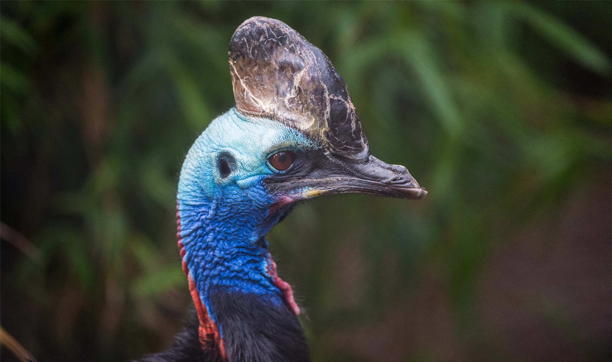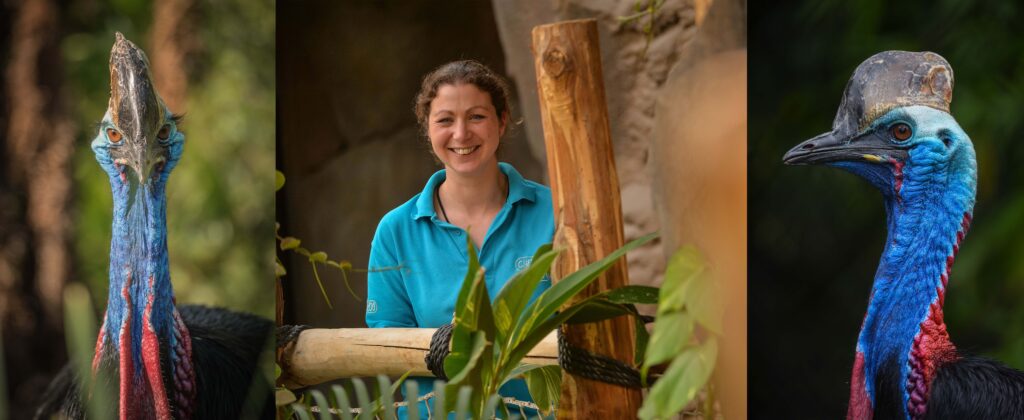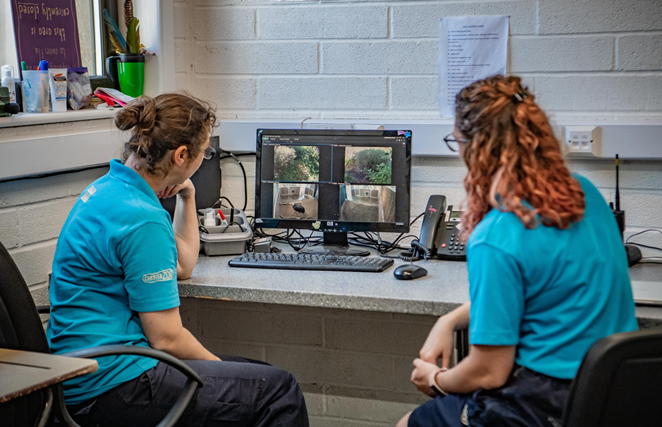- Home
- News
- What’s On
- Activities for Children
- Arts & Crafts
- Autos and Bikes
- Business events
- Car Boot & Auctions
- Charity events
- Churches & Religious
- Comedy
- Dance
- Days out & Local interest
- Education
- Exhibition
- Film
- Gardening & Horticulture
- Health
- Markets & Fairs
- Music
- Nature & Environment
- Spiritual
- Sport
- Talks and Discussions
- Theatre and Drama
- Business
- Local Information
- Jobs
- Deaths
- Charity events
- Contact Us
Chester Zoo’s dinosaur bird’s call

Keepers and scientists at Chester Zoo have recorded an unusual bird call, an infrasonic sound which could help safeguard an entire species.
This week, episode two of the zoo’s new podcast, Abi Clarke: Zookeeper in Training dropped on Spotify and other major podcast platforms. It featured Zoë Sweetman, team manager of parrots and penguins at the zoo talking all things cassowary – a remarkable flightless bird species found in Australasia.
This is the first time the cassowary call project has been made public.

Zoë Sweetman explained: “It all started when I burst into the science office and said: ‘the female cassowary is doing something unusual’. We’d spotted that she’d changed her behaviour around the male, so we set up cameras. That’s where we saw her making a vocal posture, but didn’t know what that meant at the time.
“I searched through the scientific literature to find out what the behaviour might mean, but there was pretty much nothing.

“My colleague Mark Vercoe, general manager of the birds department, recalled a few studies from the 2000s that suggested cassowaries communicate in infrasound – in frequencies below the threshold of human hearing – but aside from these, there is not much information about that, either.”
Zoë and her colleagues wondered whether the cassowary’s poses might accompany a call that the keepers could not hear, so they installed sound recorders.
Sure enough, the huge bird – whose ancestors have walked the earth for millions of years – was making a deep boom.
For now, the recordings and data are being kept top secret as they will be the centre of a forthcoming scientific paper.
“We realised this was something worth researching,” said Zoë, “because it’s a lot of effort for the females to make this strange, low sound. They must be doing it for a reason. This became a full study which formed part of my Master’s.
“We needed to make sure this call wasn’t just a one-off to Chester Zoo birds, so I expanded the study to BirdLand in Cheltenham and Avifauna in the Netherlands. We found the females there made the same call.”
These findings may improve our understanding of cassowary behaviour and aid their conservation. Existing cassowary subspecies, including the southern cassowaries living at Chester Zoo, face intense environmental pressures in Papua New Guinea, where land is being cleared for farming.
“Cassowaries are quite difficult to breed because they can be territorial outside the breeding season, which can lead to aggression between individuals,” said Rebecca Lewis, conservation scientist in population biology at Chester Zoo. “These are birds you look at and instinctively think: dinosaurs! They have long claws, and I remember watching a TV show when I was young where a cassowary kicked a hole through a thick piece of MDF.
“We’re pretty confident the sound is related to mating. Breeding success is limited in zoos and poor timing of mixes resulting in conflict is a common issue. Understanding the calls of these birds and the part they play in courtship might help time mixes more accurately, taking the guesswork out of when to pair birds.”
Cassowaries are unusual even within a group of flightless birds that include emus, rheas and ostriches.
Zoë said: “The females are polyandrous. They pair with a male, lay eggs, and then go off to find another mate, leaving the male to care for the clutch. This is extremely rare in birds, and we think the call might relate to this, alerting males that the female is ready to mate again.
“As a species they are secretive. Even though they’re quite large, and they have brightly coloured neck wattles and a tall structure called a ‘casque’ on the top of their heads, they are surprisingly hard to spot.
“They look fearsome, but they prefer to creep off into the undergrowth rather than fight, though they are quite capable of defending themselves, and males can be aggressive if they are guarding a nest or chicks.
“After watching thousands of hours of cassowary footage, I’ve realised that they shouldn’t be underestimated. I think they are a lot smarter than they are given credit for.”
The study included physiological and endocrinological elements where scientists tested hormones in the birds’ faeces to see whether the hormones peaked in synch with their behaviours, but this was inconclusive and requires further research.
Since taking part in this study, a pair of cassowaries at Birdland have successfully hatched and reared a chick.
Find the podcast here https://tinyurl.com/cassowary-chat

You must be logged in to post a comment Login